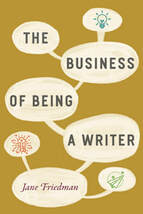Don’t Waste Your Time: Lessons from a Recent Classic
Her book gives a comprehensive overview of professional writing and pragmatic, utterly helpful advice. While it’s an ideal reference for anyone dipping a toe into the world of professional writing, the insight and advice ripples outward to other professionals, too.
Take, for instance, Friedman’s injunction to avoid wasting someone’s time. For writers, a pitch to an unresearched editor, to an ill-chosen agent, or to an unsuitable publication is not a hail-mary strategy—it’s a waste of the reader’s time and a waste of the writer’s time.
This is the case for all types of pitch-makers. You might be pitching a report to shareholders, a book to an agent, an argument to an audience, a grant to a grantor, or a professional background to an interviewer. In each case, your aspiration should be for your audience to consider the time they spend with you and your work to be worthwhile.
You will gain their appreciation by knowing that audience not as an indistinct bulk but as a single person. Recognizing your audience as a single (and actual) person makes it easier to undertake the work of understanding their professional background, needs, and aspirations. Only then can you determine if your work (or your speech or your grant) really is a good fit. Can you give this person something they need? If yes, then you can succinctly and persuasively explain what you have to offer.
This type of reconnaissance isn’t as fuzzy as it sounds. You don’t have to divine motivations (though you may want to). You simply have to turn to Google to trace your audience’s past work and current efforts. The time you spend—no matter your pitch, no matter your audience—will always be well-spent.

